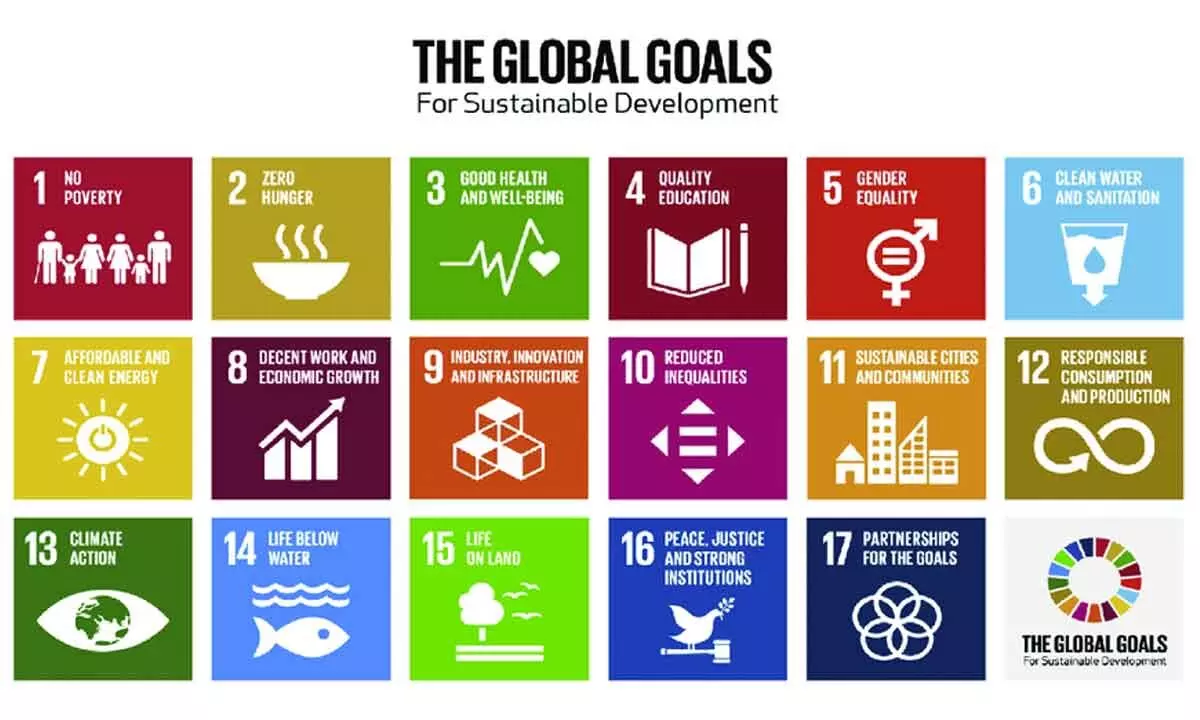Inching towards Mission 2030 with strategic sustainability moves
‘Organic’ and ‘sustainably-grown’ are the buzzwords in today’s fashion industry
image for illustrative purpose

Deutsche Bank DBKGn’s move is the latest by a leading global lender to showcase commitment to sustainable investing, as pressure builds on banks to support the globally agreed transition to a low-carbon and more environmentally friendly economy. Reformation is proof that you can be sustainable without sacrificing style
The Global Goals and the 2030 Agenda for Sustainable Development seek to end poverty and hunger, ensure human rights of all, achieve gender equality and the empowerment of all women and girls, and striving for a lasting protection of the planet and its natural resources.
On October 12, the French government launched its new global health strategy at a conference held at the International Agency for Research on Cancer in Lyon. This strategy defines France’s priorities for the 2023-2027 period-to meet current global health challenges and contribute to the achievement of SDG3 worldwide by 2030.
Vaccination, maternal and neonatal health, access to healthcare...: despite progress in global health over the past 20 years, many challenges remain. In 2022, 20.5 million children had still not received routine vaccinations, 2.1 million more than in 2019. Every two minutes, a mother dies from complications during pregnancy or childbirth.
Water replenishment is a relatively nascent area, and our path forward has not been without challenges. According to Microsoft there is guidance but no standards to align with and only a limited supply of eligible projects. The projects that are available can be expensive and are without guarantees: the expected returns can be fluid as projected timelines, volumes, and outcomes shift. And with truly positive large-scale results as the primary objective, achieving measurable impact that is also locally relevant can be complex.
As of July, our portfolio included 49 projects around the world, representing more than 61 million of potential volumetric water benefits (the equivalent volume of more than 24,000 Olympic size swimming pools) over the lifetime of the projects.
According to the United States Environmental Protection Agency, 26 billion pounds of textiles end up in landfills each year.
Realistically, most of us won't quit shopping cold-turkey. We may not even give up all fast-fashion. But, many people are willing to change their habits for the better.
Traditionally, you'd find labels like "organic" and "sustainably-grown" in the grocery aisle, but the same verbiage is becoming popular in the fashion industry, too.
Sustainable fashion doesn't seem like a natural pairing - fashion's trend-driven ways press us to buy new pieces every season, while sustainability asks us to pare down - but more and more brands are bettering their business with eco-friendly practices. Reformation is one of the brands leading the charge.
German lender Deutsche Bank DBKGn. DE plans to pump at least 200 billion euros ($216.8 billion) into the so-called sustainable financing and investments by 2025, which is its first formal target towards it.
The money will include loans provided by the bank, bonds placed on behalf of its clients and assets managed by its private bank. It does not include assets managed by its fund arm, DWS, it said in its most recent statement.
Deutsche Bank DBKGn’s move is the latest by a leading global lender to showcase commitment to sustainable investing, as pressure builds on banks to support the globally agreed transition to a low-carbon and more environmentally friendly economy. Reformation is proof that you can be sustainable without sacrificing style.
"Without sacrifice" is the key. Aflalo wants shoppers to see how easy it is to live a more sustainable lifestyle. "The success of our sustainability initiatives is determined by how effortless they are to adopt," she says. "We start with small digestible solutions that people can incorporate into their daily lives to make an impact and highlight how those changes can affect the big picture." Buying clothing that you were going to buy anyway, but choosing the item that was made ethically and with less waste is sustainability made easy. There's no significant behavior change, but a simple choice that can ultimately make a big difference.
Nike is bringing its "Just Do It" trademark motto to the fight against global climate change.
The company announced "Move to Zero" on Thursday, a comprehensive sustainability plan designed to "help protect the future of sport." The program builds upon existing company-wide efforts, including Nike's aim to power facilities with 100% renewable energy by 2025 and operate with net-zero carbon emissions.
The same goes for us, the shoppers. We may not all be ready to be minimalists and pare our wardrobes down. We may not be able to give up eating meat, driving to work, or wearing cashmere, but we can tweak these habits to make them better for the planet. Carpooling, meatless Mondays, or shopping with an eye for sustainable materials are small changes we can make for the better.

